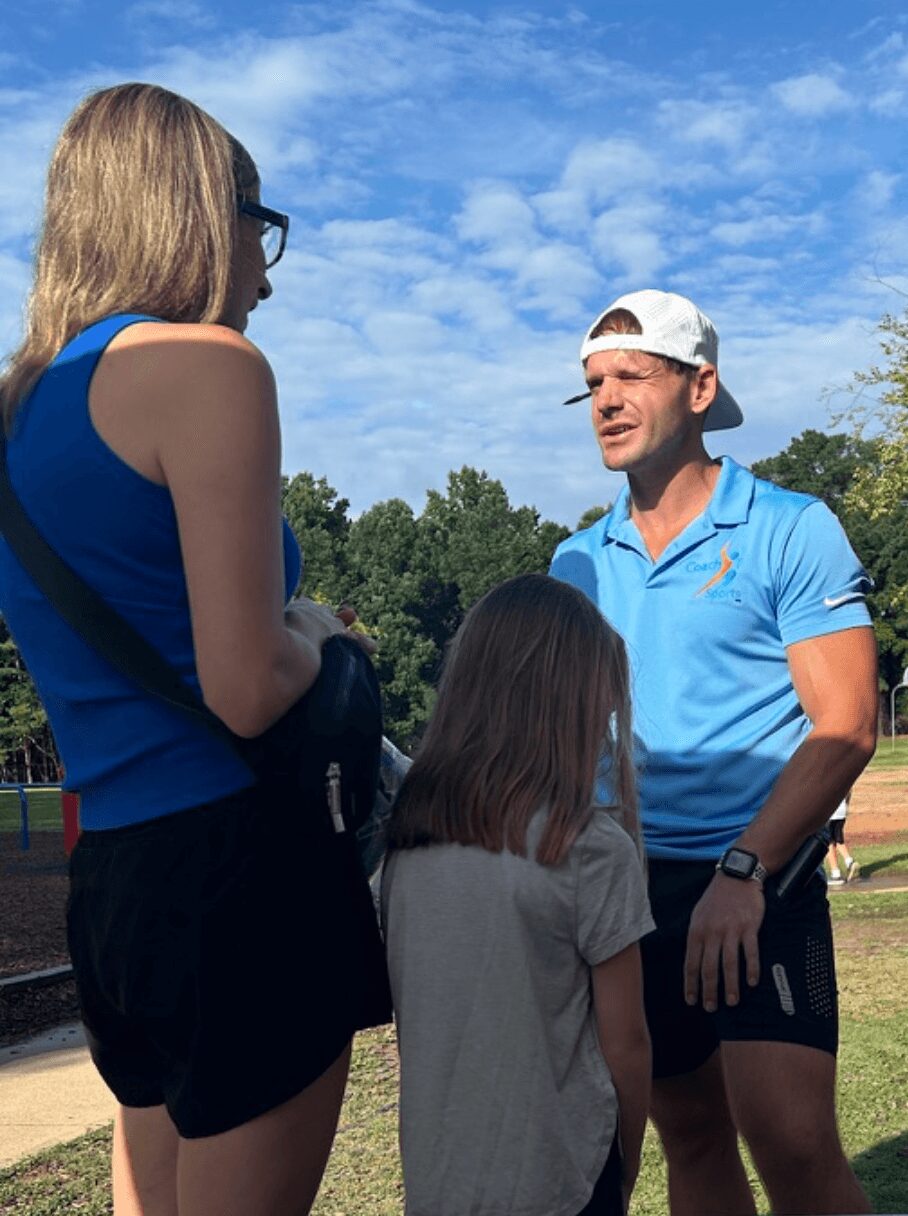

Today we’d like to introduce you to Tayler Leslie.
Hi Tayler, so excited to have you on the platform. So before we get into questions about your work-life, maybe you can bring our readers up to speed on your story and how you got to where you are today?
My name is Tayler, also known as Coach T.
I started Coach T Sports LLC in 2017 with one goal in mind: to create a culture and environment that’s fun, engaging, and teaches kids valuable life skills—like leadership, problem-solving, teamwork, and how to handle adversity.
As I transitioned from school into adulthood, I began to notice that many kids today are missing some of the essential social skills that help them thrive. There are plenty of reasons this could be—technology, video games, busy parents, unsafe neighborhoods—but the result is the same: kids don’t spend as much time playing together anymore, especially outside of heavily structured environments.
Growing up, I was obsessed with sports—both playing and watching my favorite teams and athletes. Sports shaped who I am and kept me out of trouble. More than that, they provided a natural platform for learning life skills. But it wasn’t just the structured practices and games that made the biggest impact. It was the unstructured play.
When I was a kid, we’d spend hours outside playing all kinds of sports with neighborhood kids of all ages and skill levels. When disagreements came up, we had to figure them out ourselves. We kept our own scores, made our own rules, and learned how to adapt. If someone was older or more skilled, it pushed the rest of us to improve. We taught and learned from each other, and without the pressure of parents watching, coaches yelling, or referees blowing whistles, we felt free to be creative, take risks, and try new things—without fear of failure.
That kind of play didn’t just make us better athletes—it allowed us to just be kids.
That’s the idea behind Coach T Sports. We wanted to build a safe, semi-structured environment where kids can truly be kids. Our camps are designed so the players act as the athletes, the coaches, and even the fans. We help organize the games, keep time and score, set schedules and standings, and build relationships with our campers. We’re there to support, guide, and step in when needed—but we avoid micromanaging. The goal is to empower kids to take ownership of the game.
At the end of each week, we crown a champion. This is a key part of the experience. Kids need to understand the concepts of winning and losing, success and failure. It’s all part of life. Yes, the winning team gets a reward—but that doesn’t take away from the growth, resilience, and learning every kid gains from being part of the process, win or lose. Winning matters—it’s important. But just as important is the kind of person you are when you don’t win. The real lesson is in balancing the drive to improve and succeed with being a great teammate and leader.
We all face challenges, but looking back would you describe it as a relatively smooth road?
There have been plenty of ups and downs along the way. We started off strong—our camp grew quickly within the community. What began with just 20 kids in our very first week grew to nearly 45–50 kids by the end of that first summer.
Now, eight years later, we typically sell out all eight weeks of camp each year.
One of the biggest challenges we faced was navigating the COVID-19 pandemic. Like so many small programs and businesses, we were forced to shut down for nearly a year. We rely on local schools to rent their facilities, since owning our own building—with the amount of space youth sports require—isn’t financially feasible while still keeping pricing affordable for families.
During the pandemic, there were so many unknowns. Everyone was doing their best, but often guessing at what was right. Unfortunately, we couldn’t find any locations willing or able to host our programs during that time.
To make things even harder, we were unsuccessful in receiving government assistance. Because our camps operate seasonally—primarily during school breaks—it was difficult to demonstrate a loss of income in the way the relief programs required. COVID hit in the spring of 2020, and many families had already paid for summer camp. When we were forced to shut down, we refunded all those payments. But by the time that happened, most of the available government funding had already been distributed. If not for family and friends I’m not sure we would have made it out of that time period. I am forever grateful for all those that helped us navigate those difficult times.
Covid-19 was also incredibly difficult on kids, what had already become a screen and video game obsessed generation only got worse, kids where unable to have natural connections with other kids which is an essential part of growing up. We saw this in the way they handled even simple social situations as we returned into more normal times coming out of the pandemic.
Appreciate you sharing that. What should we know about Coach T Sports ?
Our programs focus on helping kids ages 7 to 12 build strength, resilience, and responsibility through sports and play. We use these activities as a platform to teach essential life lessons that go far beyond the field.
As kids grow in our program, they can return through our Leadership in Training Program at ages 13 and 14, where they help lead younger campers and learn to give back. In fact, every member of our current staff started as campers themselves and came up through that leadership path.
We also believe sports play a vital role in the community. Along with our summer camps, we offer school-break camps, clinics, and a middle school baseball tournament that connects future high school teammates and brings the community together before the school year begins.
We’d love to hear about any fond memories you have from when you were growing up?
My Favorite Childhood Memory? That’s a tough one, but I’d say the memory that has stuck with me the most was a basketball tournament during a major ice storm that affected most of the city. We were staying in a hotel because the power was out at home, but somehow, our tournament was still a go.
I remember that with most of us staying in the same hotel, we built a strong bond with our teammates and coaches. Once the games started, though, we realized we were in way over our heads. The score was something like 38–4 at halftime. I remember sitting on the bench, stewing about the situation, while most of my teammates were out shooting around and joking during the break. My coach turned to me and said, “At least someone cares that we’re getting our asses beat.”
For whatever reason, that comment has always stuck with me. Looking back, I realize I probably should’ve been out there with my teammates instead of sitting alone in frustration. But I also think there’s something important about that moment—about caring, about not giving up no matter the score or the situation.
That experience made me think about how to lead and lift up others even when things aren’t going our way. We were out of our normal routine, out of school because of snow days, staying in a hotel, many of us without power—but we still showed up. And in that, I think there’s a lesson about resilience, teamwork, and finding strength in adversity.
Contact Info:
- Website: https://www.coachTsports.com
- Instagram: https://www.instagram.com/coach.t.sports/?hl=en
- Facebook: https://www.facebook.com/coachtsports/
- Youtube: https://www.youtube.com/channel/UCqB4Z6aV9CcyrVa7MMT1sDQ
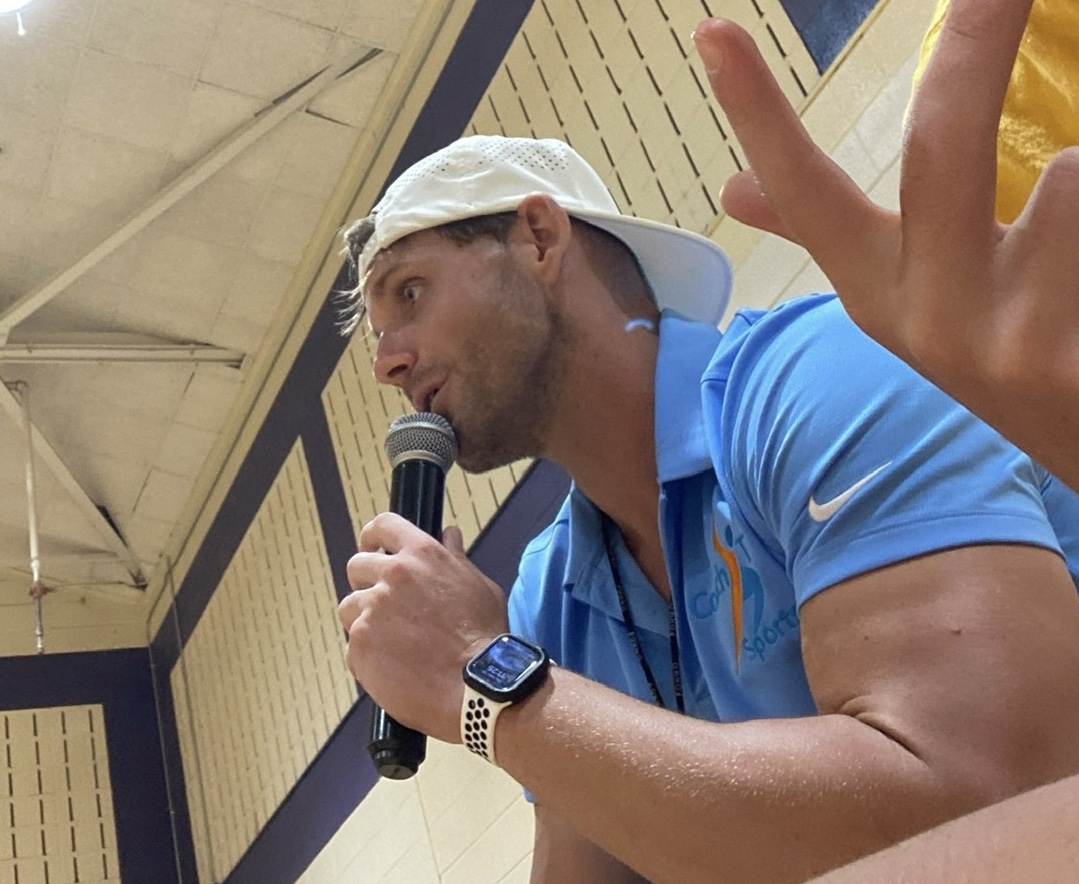
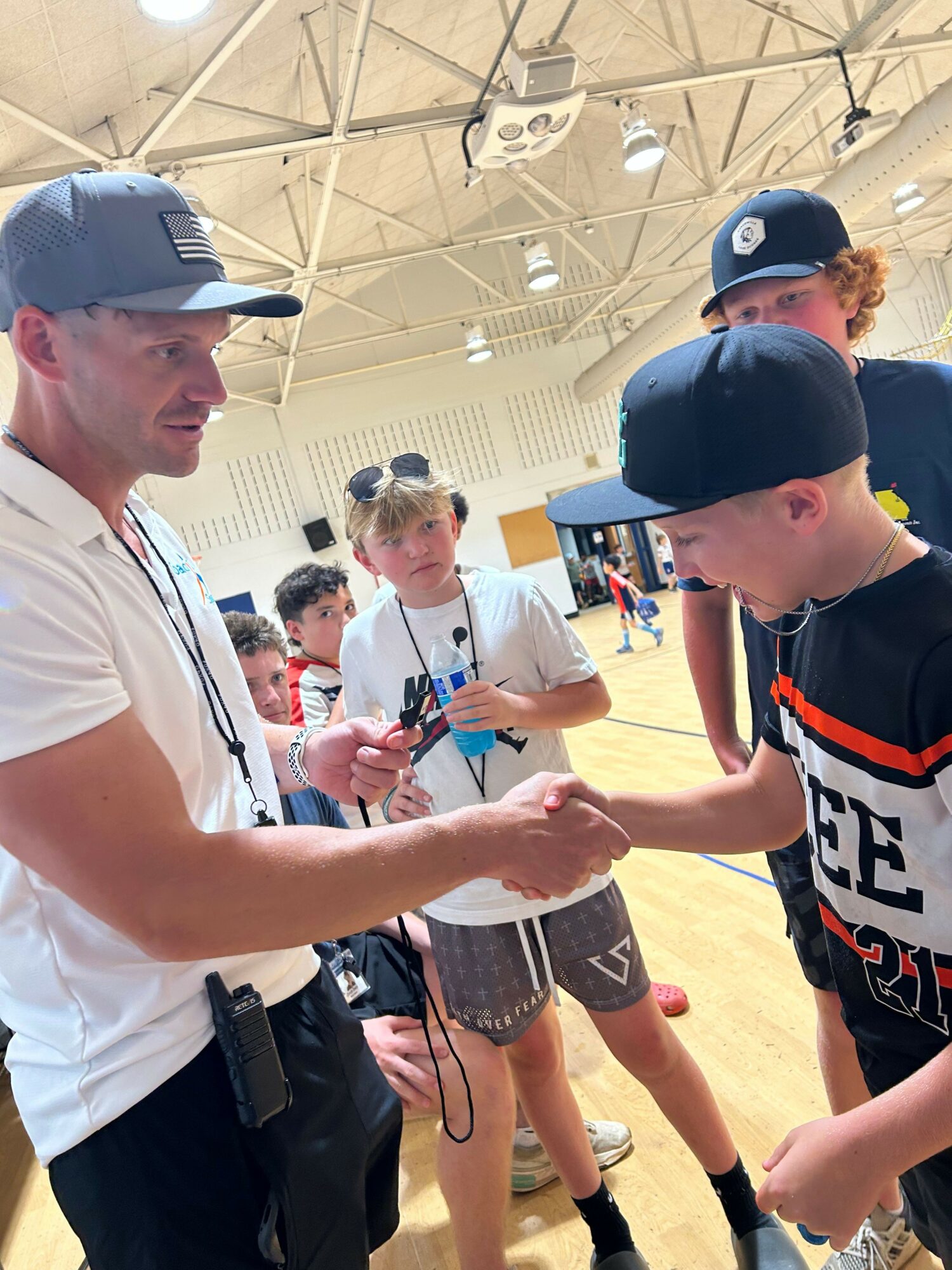
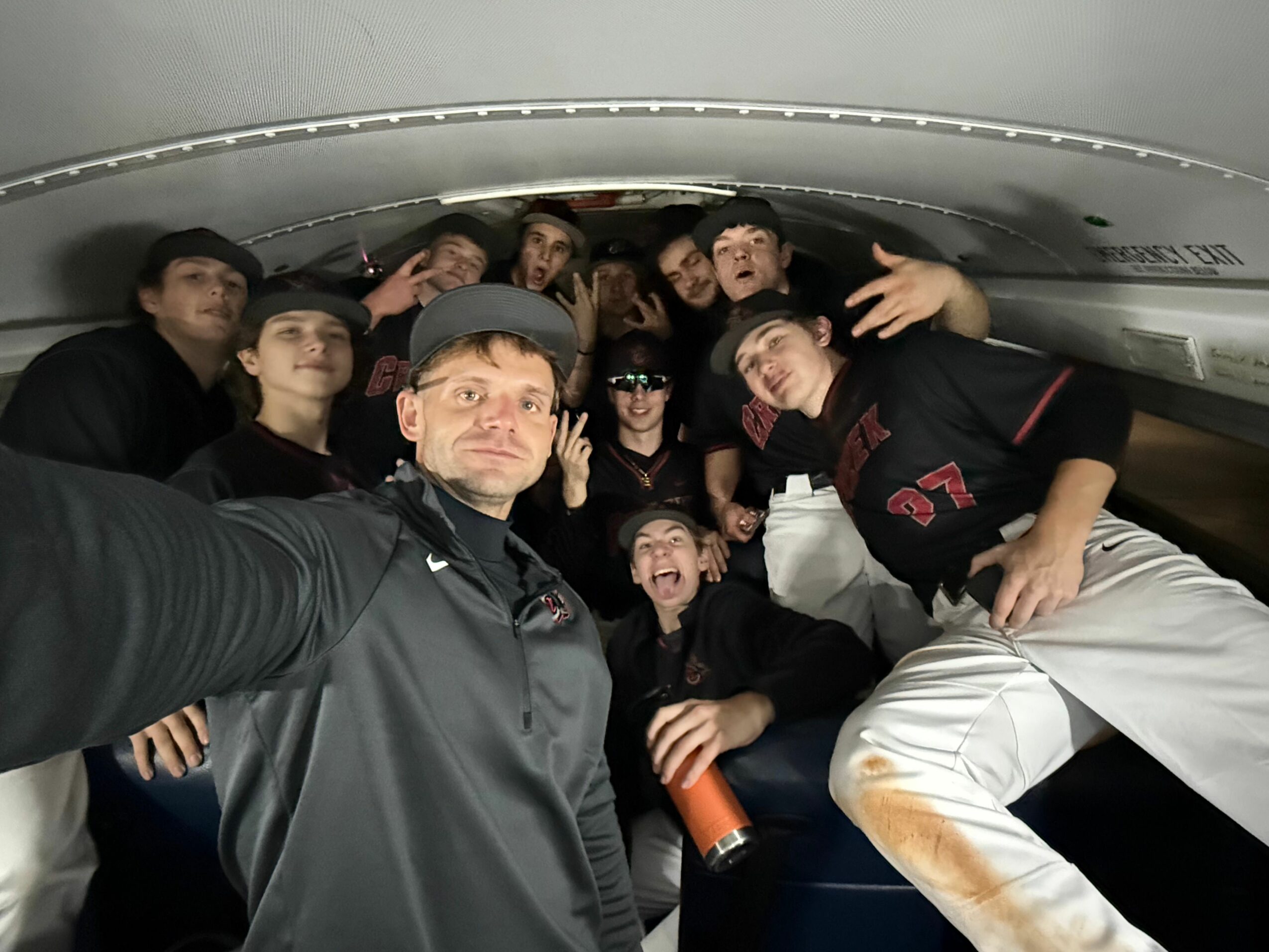
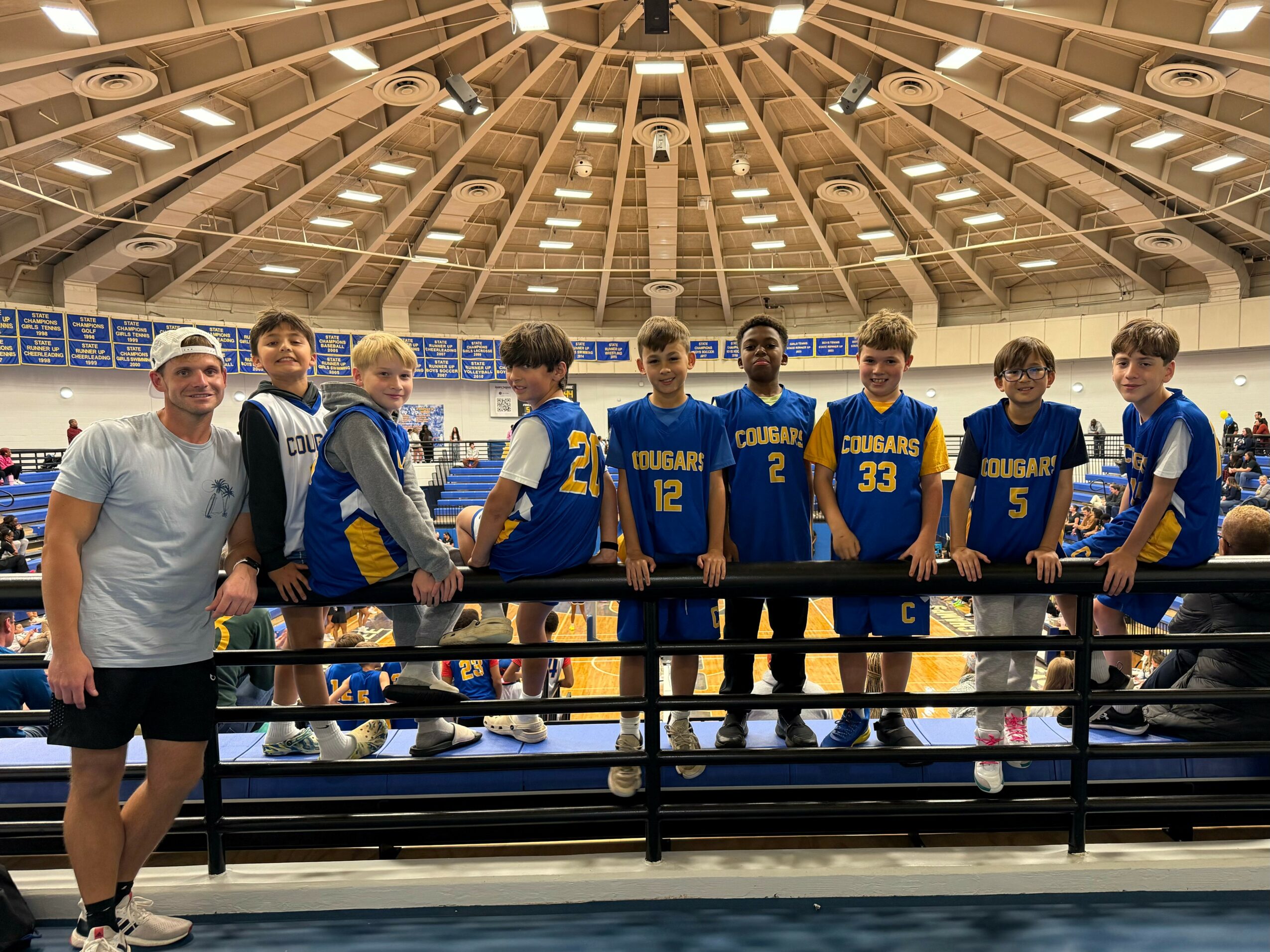
Image Credits
@CoachTSports













